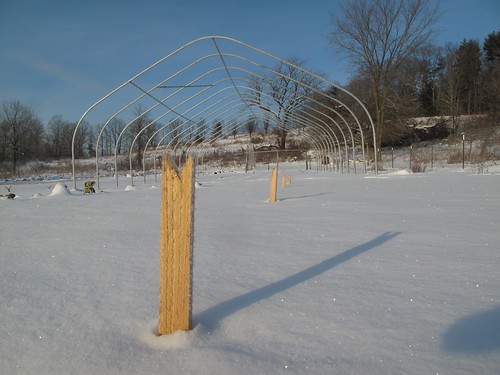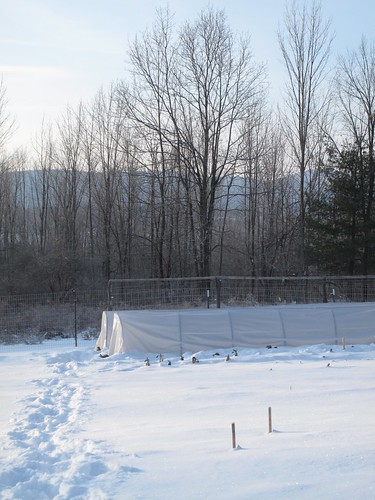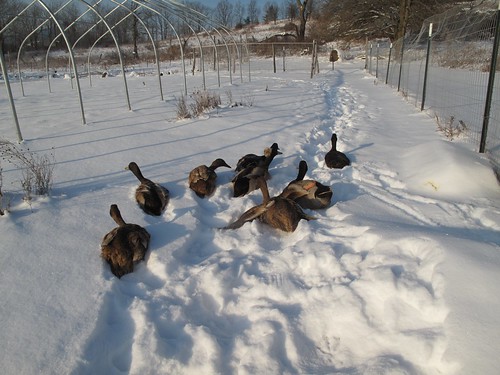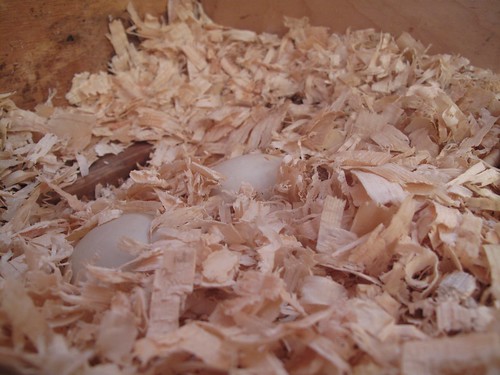Farm in Winter
January 16 2011There’s about a foot of snow on the ground at the farm–more where it’s piled up in drifts along the sides of the hoophouses or behind the duck house–and it looks permanent, like the fields were clad in polished marble. It’s hard to believe that in a matter of months, this sparkling expanse of pure white will have given way to black soil, a few dozen shades of green, flashes of flowers.
Last summer was our first summer of full-time farming. Krissy, one of our veteran servers, moved up here in the dark of last winter and right away started trays of seedlings in the kitchen, the mudroom, and anywhere else that sunlight and warmth coincided. Once the ground softened enough to till and dig in, Krissy was off like a rabbit, and she didn’t stop working until we’d set hoops over the last of the kale just before hard frosts hit in October.
She’s spent the past couple months recuperating, letting her nails grow back, her tan fade, and her back straighten out. She’s been going to Farm Beginnings class at Hawthorne Valley Farm over the river in Harlemville, reading up on soil health, and putting together budgets and projections for the coming growing season. It only takes a few weeks of this kind of work before you’re itching to get back out in the field again.
We’re ordering seeds over the next couple of weeks. We planted a pretty wide variety of vegetables last year, but we had as a goal replacing our normal vendors for at least some of our staples, like kale and salad greens. It was a noble goal, and we managed a couple times over the summer to grow all the lettuce we needed for a week or so, but we’ve come to realize that replacing our other vendors with our own produce just isn’t feasible. To grow enough kale to supply egg over the course of the summer, we’d have to plant a full acre of it–and since we’ve only got an acre and a half to work with, it wouldn’t leave much room for other vegetables.
It would also drive us into monoculture gardening, which in addition to being boring and dispiriting (no rattlesnake beans? no delicata squash?), is ecologically and economically stupid. We’ve had good luck growing kale for the past 3 years, but we’ve also seen crops that we had in spades one year (beets, radishes) go bust the next.
So it’ll be an eclectic mix of vegetables and berries we plant this year, and another year of clearing rocks, streamlining our work flow, staking tomatoes, taking notes, and hoping for the best.
The ducks haven’t seemed to mind the winter a bit. They take to water just as readily in powder form as liquid, and they’re laying eggs regularly, even though those eggs would freeze if we didn’t gather them up in the morning. We get about a dozen and a half eggs a week from them. We drop them into bowls of garlic soup, or lay them over a salad of sturdy greens, a dish that looks like a diorama of summer.




